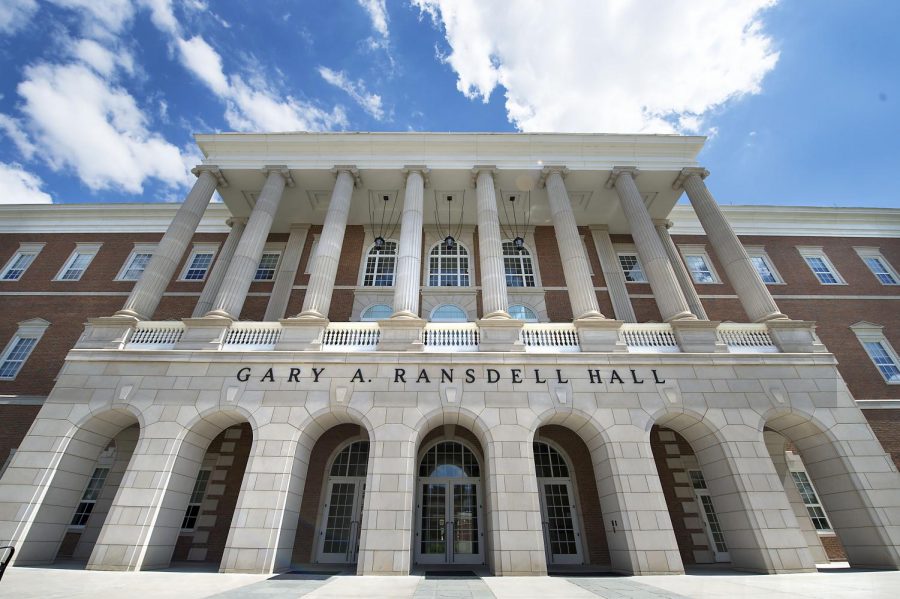WKU partners with Nelson County schools to educate future teachers
The home of WKU’s College of Education and Behavioral Sciences, Gary A. Ransdell Hall, turned four years old on April 29, 2015. The university spent $35 million to accommodate more than 3,000 students through its academic programs, including elementary education, WKU’s largest undergraduate program. Nick Wagner/HERALD
April 11, 2023
Around 50 freshman, sophomore and junior high school students from the Nelson County schools walked into Gary Ransdell Hall passing through a red, white and blue balloon arch as faculty from the Department of Teacher Education guided them into the auditorium.
All these students are prospective students for the new Tech Ready Apprentices for Career in Kentucky between Nelson County and Western Kentucky University.
“We are partnering with Nelson County to have the first apprenticeship for teachers in the state of Kentucky,” Sue Keesey, director of the School of Teacher Education, said. “These are freshmen, sophomores and juniors in the education collab…in the fall is our first apprenticeship cohort. They’ll be apprentices within the school.”
Keesey, Stephenie Martin, director of the Office of Professional Educator Services, faculty members and several student Spirit Masters gave the high schoolers a presentation on different teaching techniques and answered questions they had about campus before guiding them on a tour.
According to Corinne Murphy, dean of the College of Education and Behavioral Science, the students who applied to become apprentices through this program will be announced later this month.
Apprentices of this program will participate in dual-credit general education courses through Elizabethtown Community Technical College and WKU, earning 59 hours of college credit and earn 24 hours toward their teacher certification. Students will stay in Nelson County throughout their time in college, after graduation the apprentices will be enrolled at WKU, while remaining employed with Nelson County Schools, to earn the remaining 61 hours needed to earn a Bachelor’s Degree.
Murphy also said students will work on a “competency based portfolio” that includes such things as lesson planning that they will show to WKU and Nelson County Schools.
Keesey said part of this collaberation’s goal was to give students hands-on teaching experience that will help them determine if this is the right career path for them.
“Part of this collaboration experience is to determine if this is really what they want,” Keesey said. “It’s a different way for them to investigate hands-on what they want to do for their future careers.”
Murphy said this program will also help with the teacher shortage Kentucky is facing.
“My hope is that we can elevate the teaching profession as one of the first choice majors for future students coming to college,” Murphy said. “We have done a great job of recruiting into industries that include engineering and STEM and medical. We’ve really elevated these professions as opportunities for high schoolers to think about when they go to college, but we’ve, for some reason, left education off to the side. The apprenticeship program…serves to elevate education as a future profession for our high school students.”
Murphy said as of now the program only includes Nelson County students but soon will include Grayson County schools. She also mentioned that numerous school districts have reached out to WKU wanting to have a similar apprenticeship program.
She Hopes this program, and future programs to come, will encourage students to pursue education as a career and it will provide them with valuable skills.
“They will achieve the pedologicaland classroom management skills to be the next generation of effective teachers and beyond that the next generation of community leaders,” Murphy said. “My hope is that these students will…be life-long educators, teachers and leaders.”
























